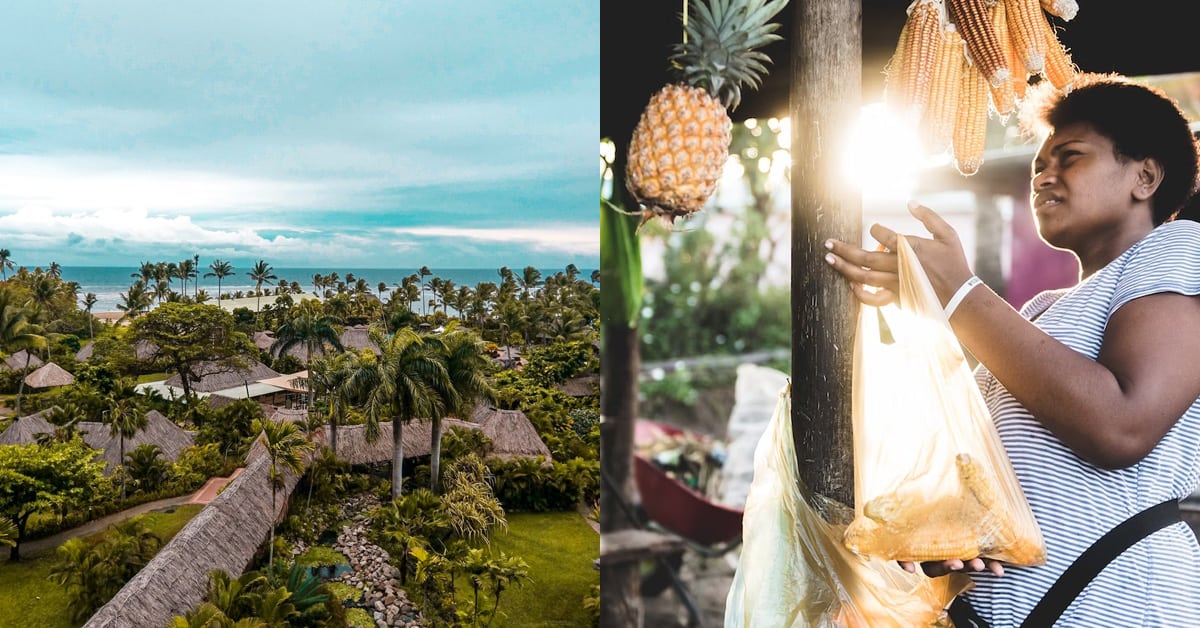Fijian cuisine is a unique blend of flavors and cooking techniques that reflect the country’s rich cultural heritage. The cuisine is heavily influenced by the indigenous Fijian, Indian, and Chinese cultures, resulting in a diverse range of dishes that are both delicious and satisfying.
Fijian food is known for its use of fresh, locally sourced ingredients, including seafood, tropical fruits, and root vegetables. Whether you’re a fan of spicy curries, hearty stews, or sweet desserts, Fijian cuisine has something to offer everyone.
Fijian cuisine halal or not?
Is Fijian food halal?
Fijian food can be halal if it is prepared according to Islamic dietary laws. However, some Fijian dishes may contain non-halal ingredients such as pork or alcohol, so it is important to check the ingredients before consuming.
Additionally, some Fijian restaurants may not be certified halal, so it is best to inquire about their preparation methods before dining.
What kind of food do Fijian eat?
Fijian cuisine is a blend of indigenous Fijian, Indian, Chinese, and European influences. Some popular Fijian dishes include:
- Kokoda – a dish made with raw fish marinated in coconut cream and lime juice.
- Lovo – a traditional Fijian feast where food is cooked in an underground oven.
- Rourou – taro leaves cooked in coconut cream.
- Palusami – taro leaves stuffed with corned beef or fish and cooked in coconut cream.
- Dal – a lentil soup that is a staple in Indian Fijian cuisine.
- Roti – a type of Indian flatbread that is popular in Fiji.
- Cassava – a starchy root vegetable that is often boiled or fried.
- Seafood – Fiji is surrounded by the Pacific Ocean, so seafood is a common part of the diet. Fish, crab, and prawns are popular choices.
How can you tell if the food is halal in Fiji?
In Fiji, halal food is available in some restaurants and food outlets. To determine if the food is halal, you can look for halal certification or ask the restaurant staff if the food is halal.
Some restaurants may display halal signs or logos to indicate that their food is halal. Additionally, you can also check with the local Muslim community or mosque for recommendations on halal food options in the area.
Is it hard to find halal food in Fiji?
It may be challenging to find halal food in Fiji, especially outside of major cities. However, some restaurants and hotels in urban areas may offer halal options.
It is recommended to inquire about the halal status of food before consuming it. Muslim visitors to Fiji may also consider bringing their own halal food or cooking their meals.
Is Fijian food healthy?
Fijian cuisine is generally considered healthy as it is based on fresh and natural ingredients such as seafood, tropical fruits, vegetables, and root crops.
Traditional Fijian dishes are often cooked using traditional methods such as grilling, steaming, and baking, which helps to retain the nutrients in the food. However, some modern Fijian dishes may contain high amounts of sugar, salt, and fat, which can be unhealthy if consumed in excess.
What is Fijian food similar to?
Fijian food is similar to other Pacific Island cuisines, such as Hawaiian, Samoan, Niuean, and Tongan. It also has some similarities to Indian and Chinese cuisine due to the influence of these cultures on Fijian cuisine.
Steps to find halal food in Fiji
Here are some tips to find halal food in Fiji:
- Research halal food options in Fiji: Start by researching halal food options in Fiji. You can use search engines like Google or social media platforms like Facebook to find halal restaurants, cafes, and food outlets in Fiji.
- Check for halal certification: Once you have found a few halal food options, check if they have halal certification. Halal certification ensures that the food is prepared according to Islamic dietary laws and is free from any haram (forbidden) ingredients.
- Ask locals: If you are unsure about the halal status of a particular food outlet, ask locals for recommendations. They can guide you to the best halal food options in the area.
- Look for vegetarian options: If you are unable to find halal food options, look for vegetarian options. Vegetarian food is generally considered halal as long as it does not contain any haram ingredients.
- Avoid non-halal food: If you are unable to find halal food options or vegetarian options, avoid non-halal food. This includes pork, alcohol, and any food that contains haram ingredients.
- Bring your own food: If you are traveling to a remote area where halal food options are limited, consider bringing your own food. This ensures that you have access to halal food at all times.

